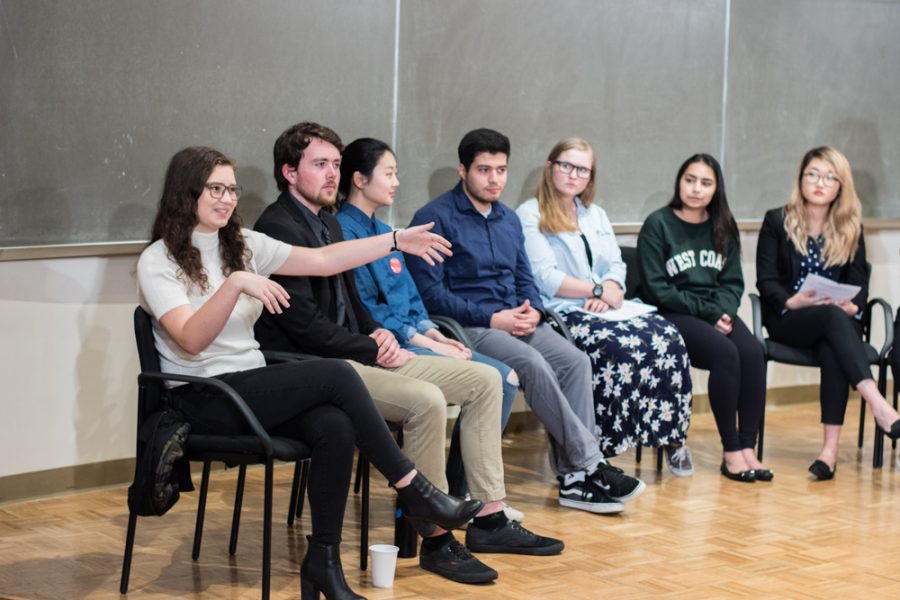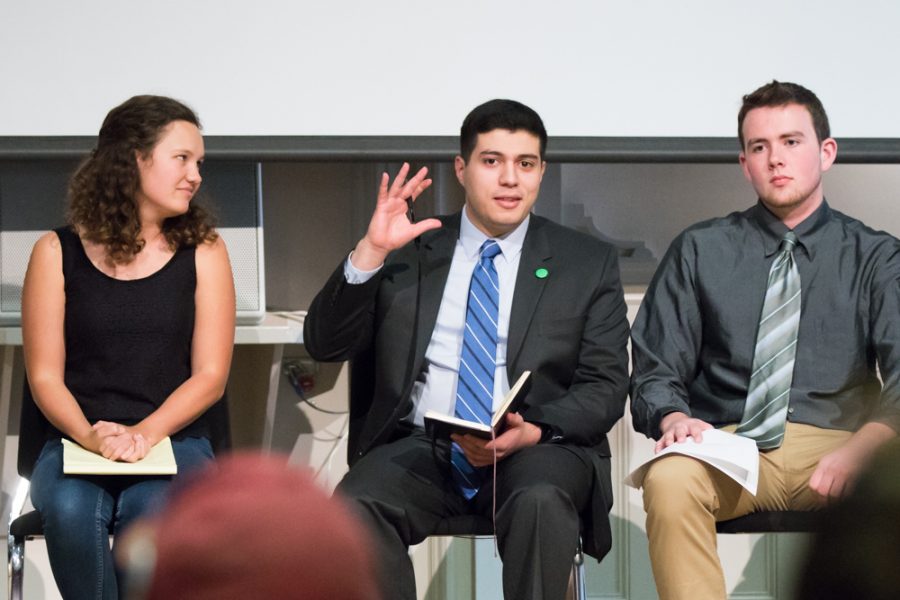
For the first time this year the ASWC budget request forms required club leaders to itemize lists of their expenses for each event they put on.
Senior Finance Chair Fritz Siegert worked on restructuring the club budget request form to address several areas of the previous form, which he found problematic.
“The initial form was not as comprehensive as I wanted it to be. Having the most comprehensive information you can is better so that we can make the most informed decisions we can when we go through the budgeting process,” he said.
The new budget request forms required clubs to fill out charts giving the location, date, number of participants and itemized cost lists for each event they put on in the past school year and for each event they plan to host during the upcoming year.
Siegert made the decision to examine clubs’ money management more closely because he was dissatisfied with the ASWC Finance Committee’s tendency in previous years to cut costs from the clubs with the largest budgets. He wanted instead to see which clubs were managing their money successfully and to cut costs only from those who weren’t.
Siegert also chose to remove a question from the 2012 budget request forms, which asked clubs to cut unnecessary expenses from their budget and to list those planned cuts in their request, because he disliked the implication that ASWC pressured clubs to cut costs.
After having filled out the forms for the 2012-2013 school year, several students have expressed concerns with both the detail required in the forms and the short time frame in which they were required to fill out the forms and submit them. Forms were sent to club leaders 10 days before they were due.
Junior Natalie Jamerson, president of Whitman Direct Action, sees room for improvement on the forms.
“The form seems really structured and specific, but it gives a lot of room for flexibility. I hope that the forms could be more clear in noting what is actually required and what points could be addressed more flexibly,” she said.
Because the Organic Garden purchases its supplies from the local farmers’ market, they don’t have receipts to help them keep track of expenses. This made giving a detailed account in the forms difficult.
Siegert responded to students’ concerns by emphasizing that club leaders can choose the level of detail in their responses. He also addressed the fact that clubs were given 10 days to submit their forms.
“In the bylaws it states that a budget request form is released [exactly] 10 days before it’s due . . . Some of my predecessors released the forms up to a month in advance, which is just not in the bylaws.”
Siegert also said that it might be worthwhile to consider revising that particular bylaw.
The difficulties created by the restructured form were exacerbated by the fact that both Jamerson and Beneman face the unique challenge of running clubs with expenses not just during the school year, but during the summer as well. WDA spends most of its money doing summer projects, like last year’s project in Guatemala. The organic garden hires interns to work in the garden over the summer.
Jamerson acknowledged that organizations with summer costs have greater difficulties than most clubs.
“It would maybe be good to see a different form for organizations with summer expenses. It doesn’t make sense for them to have the same form,” she said.
Beneman said that several Organic Garden interns have had trouble getting reimbursements for summer costs, and that many end up paying for supplies themselves.
“There’s just not a good system in place for our interns to get reimbursed,” she said.
“I completely understand that student government is important, but having to interact with different people every year has been a huge challenge. No matter how much information is passed on from one member to the next, every year a new person is learning the job and has to learn about the needs of my club all over again.” +








